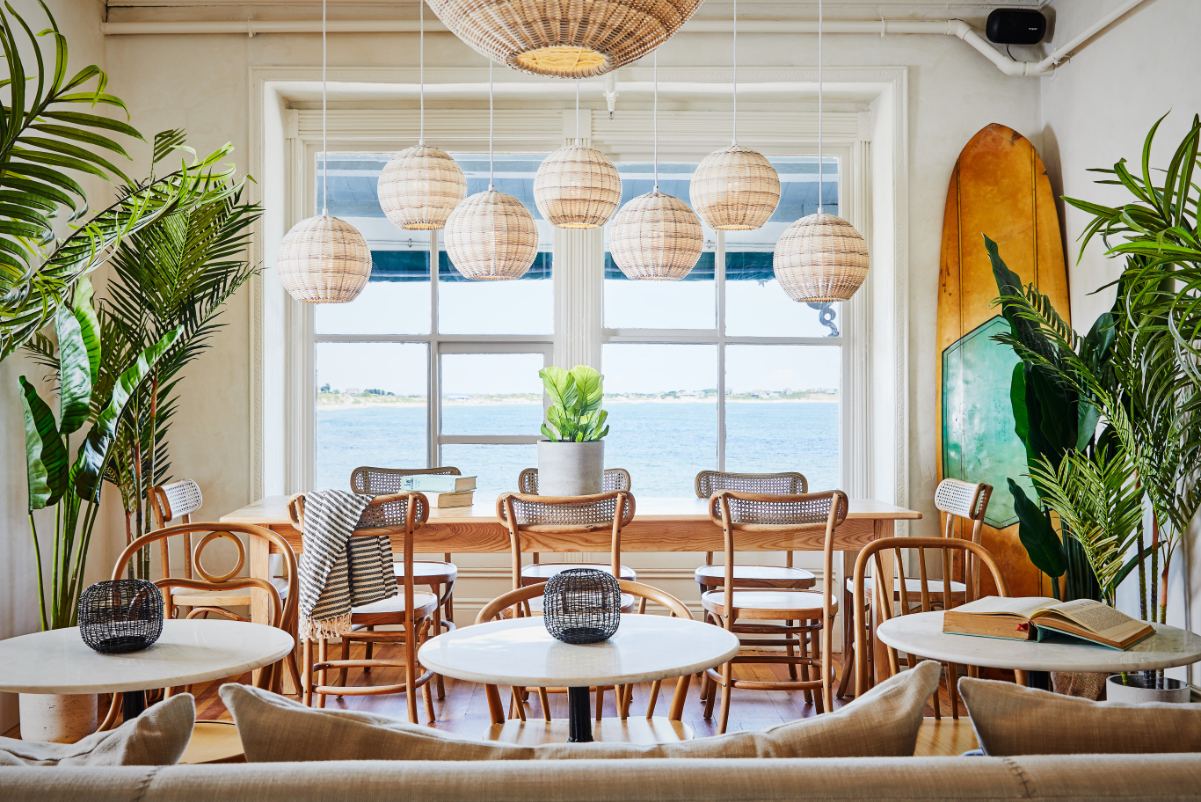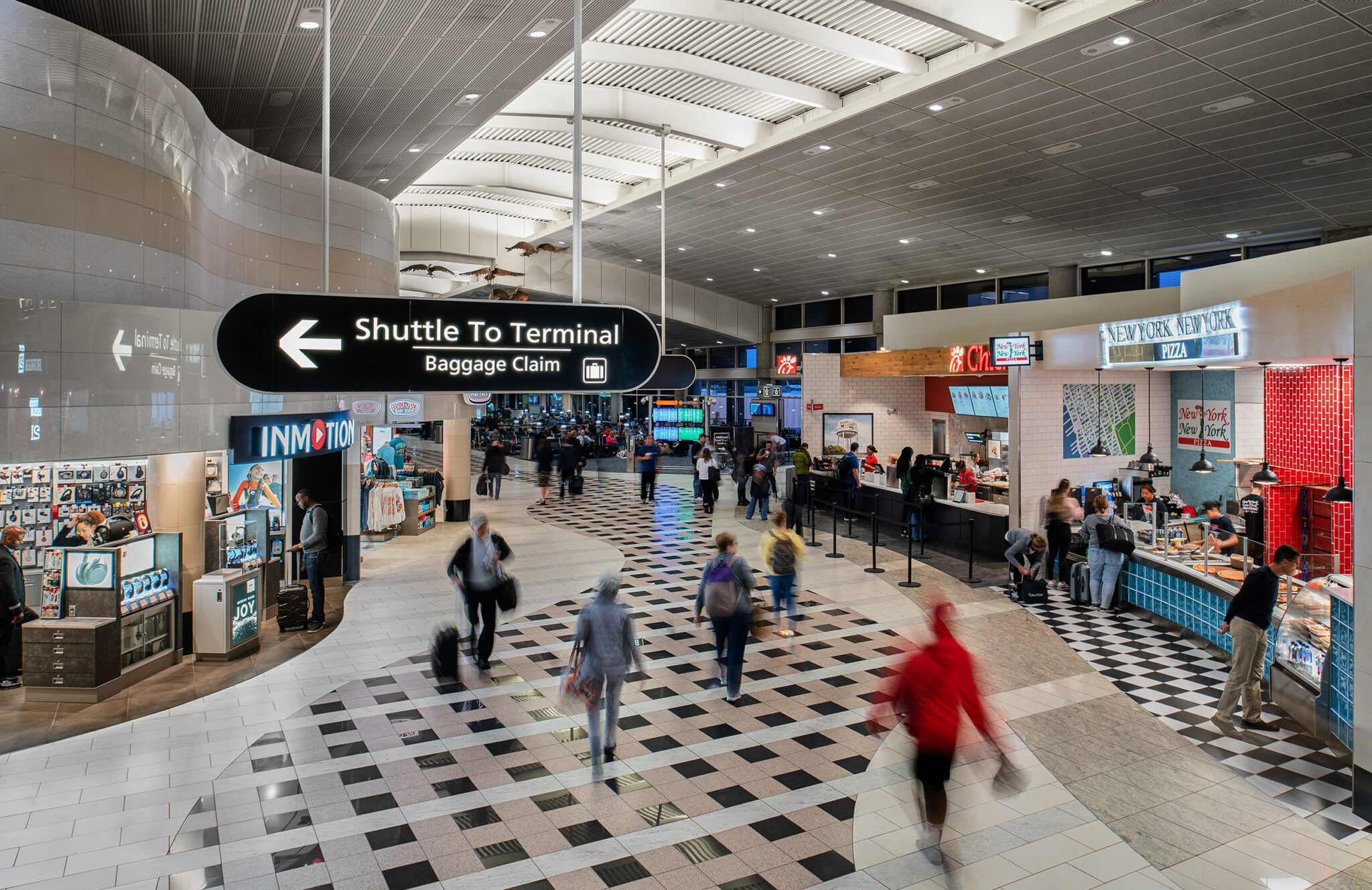Saudi Arabia Businesses May Finally Adopt Digital Travel Booking Due to Pandemic

Skift Take
Tourism may be getting some traction in Saudi Arabia, not least because residents aren’t permitted to leave while its neighbors are allowed in. But it’s a different story for the corporate travel sector, one of the kingdom’s biggest agencies is discovering.
Seera Group, which manages corporate travel through its Elaa division and holidays via its Almosafer brand, is seeing a faster leisure recovery due to an international flight ban and a culture of booking business trips offline.
Comparisons can be drawn with China, which is seeing a domestic tourism revival, but in Saudi Arabia, digital penetration is a lot lower; business trips are mostly booked using small independent agencies.
Join Us For Our Skift Aviation Forum Online Conference November 19
Abdulrahman Mutrib, Seera’s executive vice president and group chief technology officer, estimates Elaa is used by just 5 percent of businesses in the kingdom. “We’re barely scratching the surface of the corporate travel market,” he said.
Back to School
With the pandemic forcing companies to rethink the way they operate, Mutrib said he wants to tap into demand from those businesses willing to explore new ways to save costs to help their recovery.
“We still have faith in the corporate business, that things will recover fast next year. That’s why we’ve been investing in technology and new platforms. We’ll be ready to serve clients,” he said. “There’s going to be a lot of education, awareness and marketing, but mostly one-to-one meetings with clients to show them the benefits of booking online.”
Last month, Seera launched a new platform called “elaa 3.0” for corporates and government departments, with features such as easier booking modifications, the ability to display to employees real-time travel policy updates, and swift digital approval processes.
“Companies have taken a step back to look at how they can cut costs, across the board, to stay alive. If we tell them we’re going to give them a tool that we can cut your travel budget by 20 or 30 percent … the pandemic gives those companies an incentive to look at getting rid of the old ways.”

Saudi Arabia’s proposed $500 billion futuristic city, Neom, recently awarded contracts to Tamimi Global and Saudi Arabian Trading and Construction Company to build a new village. Picture: Neom
However, Saudi Arabia has made significant steps over the past few years, according to another corporate travel agency. FCM Travel, part of the Flight Centre Travel Group, has a presence in the country through its tie-up with Attar Travel, based in Jeddah.
“The government has been promoting the meetings and events sector, and pushing to sponsor and host key sporting events such as Formula 1, golf tournaments and inviting high-profile artists to perform concerts for the first time,” said Ciaran Kelly, FCM’s regional leader for the Middle East and Africa.
Saudi Arabia is FCM Travel’s fastest growing market in the Middle East, and Kelly said every request for proposal he works on, on a regional or global level, usually has business for the kingdom in the scope of work. “Over the Covid period we have implemented and currently setting up at least 10 new regional or global clients into FCM Saudi via Attar Travel,” he added.
Kelly also thinks online adoption is growing, and said its own Elite accredited partnership with SAP Concur, which he claims brought sales teams into the market, is supporting an appetite for digital technology. “We have been working with online booking tools in Saudi Arabia for the last few years, and our experience has been paying off in attracting new clients,” he said.
Barriers and Borders
Like Dubai, Saudi Arabia is in the process of diversifying its economy away from oil. It’s only just starting to take the first steps though, compared to the emirate, as part of its Vision 2030 program which launched four years ago. Saudi Arabia also relaxed visa conditions for 49 countries last year.
However, currently its economic and business fortunes rise and fall with oil prices and oil income, and attempts to move into a post-oil era are uncertain. Vision 2030 has also come under some scrutiny, amid the controversy surrounding the killing of Saudi Arabian journalist Jamal Khashoggi in Turkey in 2018.
“The coronavirus outbreak in early 2020 impacted an already weakened oil market, as the global oil demand was temporarily slashed by a quarter in the second quarter,” noted FCM Travel’s Kelly. “Due to the impact of Covid on businesses in the region and their cash flow, many agencies have either stopped or reduced credit terms to their corporates.”
One upside, Kelly added, was that agencies are now promoting the benefits of virtual and credit card payments to their clients — a key component of modern travel management. In the State of California, for example, the pandemic led to widescale adoption of virtual payments by hotels, due to it being a requirement to join the Healthcare Workers Program.
Meanwhile, Seera’s Mutrib believes another barrier to restarting business travel is the disparity between different government responses.
“Every single country has responded to this crisis differently,” he said. “Other Gulf Cooperation Council countries (Kuwait, United Arab Emirates, Qatar, Bahrain, and Oman) and the wider Middle East and North Africa region have more relaxed rules when it comes to international travel. Airlines like Etihad and Emirates restarted as early as June,” he said.
Yet while Elaa’s sales dropped 80 to 90 percent in April and May, it managed to stem more losses through its repatriation efforts — a trend Australia’s CTM also experienced in the early phases. Local government travel, too, has helped and Mutrib said Eela has a 25 percent market share of this sector. It was even managing to recover faster than the UK corporate travel division, Clarity Travel, it owns, he added.
Building Momentum?
Looking further ahead, Saudi Arabia looks likely to resume international flights in the first quarter of next year. FCM Travel’s Kelly is looking ahead to the construction of the proposed $500 billion futuristic city Neom Bay. “This could offer opportunities for firms, provided financing can be found,” he said. “There are also plans to develop mining gold, copper, uranium, and phosphate, and the government has started the construction of Spark — the King Salman Energy Park — in the Eastern province, with a plan to create a hub for innovation, technology, industry, and energy.”
He’s also counting on FCM continuing to be active in the market as the interest in digital technology increases, and claims the agency’s products offer improvements that many of its competitors have been slow to deploy there.
For Seera’s Mutrib, the focus will be on growing its corporate client base in Saudi Arabia first, over the next three to four years, before venturing out to other regions in the Middle East.
Although the pandemic has hammered global economies, the current conditions in Saudi Arabia could line it up for digital acceleration in the corporate travel sector, as they are to some extent in Latin America.
If the country does fully reopen its borders early next year after its shut-off from the rest of the world, 2021 will be a pivotal year.
Register Now For Skift Aviation Forum, Happening Online November 19




